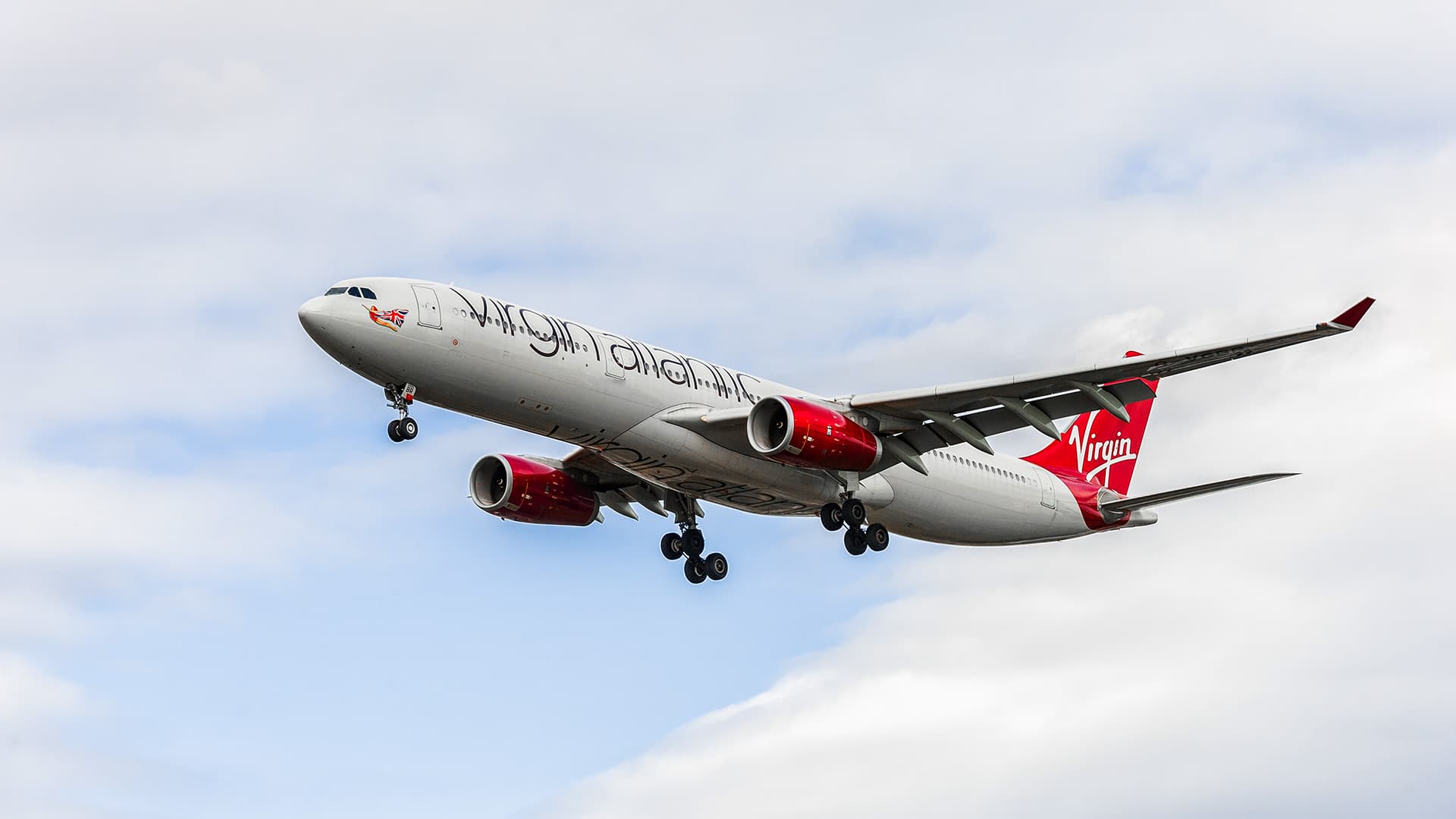Ginkgo.Your Innovation Partner.

Ginkgo Biosecurity is partnering with Virgin Atlantic’s Passenger and Employee Health Teams to tailor its “Horizon” digital pathogen monitoring platform to the aviation industry’s specific needs. Through this partnership, the Health Team is providing expert feedback and user advice, while leveraging Horizon to identify and monitor and potential infectious disease risks for the airline and support response mechanisms that protect passengers and crew.
Potential outbreaks represent an important risk to an airline by affecting the health of crews, passengers, and operations. The ability to identify new outbreaks early and monitor any existing ones in real time is critical for an airline’s Health Team to inform crews and passengers about potential risks in destination countries and recommend mitigating actions. Collecting, validating, monitoring, and interpreting these data is exceptionally resource-intensive since they are often unstructured, of varying reliability, and frequently require epidemiological expertise to interpret. This effort-intensive and complex activity reduces the time and effort the Health Teams have to dedicate to essential strategic activities such as the development of mitigation plans and communication with decision-makers, crews, and passengers.
Virgin Atlantic supports Ginkgo in developing a digital biosurveillance solution tailored to a global airline traveling to multiple continents. Over a six-month pilot, the team is leveraging Ginkgo’s Horizon System, which detects and monitors infectious disease events worldwide by aggregating, structuring, and validating hundreds of different open-source epidemiological data feeds leveraging AI and a dedicated team of trained epidemiologists. These include:
Early warning data feed: a pipeline that detects, monitors, and flags outbreaks of potential concern, with metrics including summary epidemiological data and a sophisticated risk score for each outbreak.
Structured epidemiological data: high-resolution, true-to-source data on the spatiotemporal evolution of 3,300+ epidemics dating back over 60 years.
Through this pilot, the Virgin Atlantic Health Team leveraged Ginkgo’s data and expertise in epidemiology and biostatistics to:
Streamline operations: The Health Team has reduced the amount of time required to identify outbreaks of concern.
Increase breadth & confidence of coverage: The Health Team has been able to efficiently track a larger number of outbreaks with higher confidence compared to a more manual approach.
Benefit from expert consultation: The Health Team has looked to Ginkgo’s epidemiology and global health experts to make sense of the information about outbreaks of concern, in particular the Mpox outbreak in Central Africa and the Marburg Virus outbreak in Rwanda.
Dr. Ben Oppenheim, Head of Ginkgo’s biointelligence group, said: “We are incredibly proud of the collaboration with the Virgin Atlantic Health Team and grateful for their feedback, which has helped us refine our data and tools to better support the aviation industry to identify, monitor, and address communicable disease risk.”
Ms. Linda Porter, Virgin Atlantic’s Senior Manager Health, highlighted the important role of this pilot: “At Virgin Atlantic, we are always looking to innovate within the digital health space. We have recently evolved our inflight telemedicine provisions, and we are pleased to be the chosen airline to support Ginkgo in its exciting development of a digital biosurveillance solution.”
The airline industry is an important stakeholder in the biosurveillance ecosystem, being both a user of this data and also a source of data about the movement of people and goods. Ginkgo continues to focus on developing solutions that help airlines worldwide better manage the risk of pathogen outbreaks. Thanks to its highly innovative and safety-first mindset, Virgin Atlantic continues to be a critical partner in advancing the thinking in this space and developing and testing new technologies that benefit the industry, its crews, and its passengers.